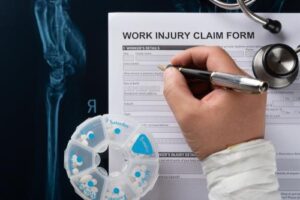
Every year, more recreational vehicle (RV) drivers enter Georgia roadways. People use RVs for camping or sight-seeing in our beautiful state. While these massive vehicles are intended for fun and relaxation, when they collide with a regular-sized motor vehicle, it can spell disaster.
The weight and size of an RV are a potential threat to other motorists. This is especially true because many RV drivers have little to no experience operating them. Negligent RV operators can cause terrible accidents involving other motor vehicles.
If you were injured in a motorhome or RV accident, talk to a skilled Georgia RV accident lawyer. You may qualify for compensation for your damages.
What Are RVs?
RVs are trailers or motor vehicles that include built-in living areas. In addition to motorhomes, other vehicles considered RVs include:
- Camper vans.
- Fifth-wheel trailers.
- Pop-up campers.
- Caravans.
- Towable RVs.
Depending on their features, lengths, and capacities, Georgia RVs are sorted into three categories:
- Class A — luxury RVs, usually weighing 13,000 to 33,000 pounds
- Class B — include campervans, weighing 6,000 to 8,000 pounds
- Class C — attached to a truck with a sleeping area that fits over the truck cab, weighing 10,000 to 12,000 pounds
Get the strong arm
The Differences Between a Car and an RV
The most apparent difference between a car and an RV is the size. RVs are more substantial and lengthier than cars because they must accommodate people who live in them. This means drivers have a higher chance of losing control over them, leading to more RV collisions on Georgia roads.
- On average, Class A motorhome lengths can reach 33 feet tall but can extend up to 45 feet. As stated above, they often weigh 33,000 pounds; however, beefier models can tip the scales at more than 40,000 pounds.
- Average cars weigh about 4,000 pounds.
It is no mystery who would receive the brunt of the damage in a collision with one of these behemoths.
Injuries Caused by RV Accidents
RVs driven at high speeds on Georgia highways and freeways can cause terrible collisions and severe injuries including the following:
- Broken bones
- Traumatic brain injury (TBI)
- Lacerations
- Disfigurement
- Dismemberment
- Loss of consciousness
- Loss of hearing or sight
- Critical burns
- Neck or back injuries, including whiplash
When an RV crashes into your motor vehicle at high speed, your injuries could be excessive. Even if your initial injury is temporary, you may have complications that last a lifetime.
Typical RV Accident Causes
There are two basic types of licenses: commercial and non-commercial. Some states require RV operators to have a commercial driver’s license (CDL), the kind required for bus or tractor-trailer operators. Since the Georgia General Assembly does not categorize RVs as commercial vehicles, the state does not necessitate additional training for an RV driver’s license.
Therefore, the RV driver that caused your accident may have had little to no experience operating the vehicle. RV drivers are often senior citizens and may have reduced vision, impaired response reactions, and other health conditions. Added to all of this, the RV’s massive size and reduced agility can elevate RV accident risk factors, including:
- Excessively tired drivers
- Faulty or improperly installed hitches, causing runaway trailers
- High winds
- Increased blind spots
- Luggage and supplies not balanced properly
- Miscalculated turns
- Overloaded vehicles
- Rollovers caused by a high center of gravity
- Speeding
- Tire blowouts
- Underestimated stopping distances
- Unsecured luggage falling off the vehicle into the roadway
Contact a qualified RV accident lawyer to help you determine who caused your accident. Often the RV driver or owner could be found negligent for your injuries. The RV or trailer hitch manufacturer could be held accountable if there was a defect or equipment failure. Contact a Georgia RV accident lawyer if you suffered injuries in a recreational vehicle accident. They will determine your claim eligibility and help you file against the correct party.
Steps to Take After an RV Accident
An RV accident can change your life in an instant. It can severely limit your ability to earn income, and without earnings, your medical bills remain unpaid. Thankfully, you can seek financial compensation from the at-fault party through a lawsuit. To bolster your claim’s position, collect evidence, and see a doctor as soon as possible to document your injuries. Other steps to take following an RV accident include:
- Stopping your motor vehicle – Put on your hazard signals and drive your car a safe distance away from moving traffic if you can.
- Rendering aid where needed – Check yourself and passengers for injuries and call 911 for immediate help.
- Exchanging information – Get the RV’s make and model, the driver’s first and last name, address, phone number, license plate number, driver’s license number, and auto insurance name and policy number. The more information, the better.
- Calling the police – An automobile accident report is required in Georgia if there are injuries involved and property damage greater than $500. Safeguard your rights by disclosing the accident as quickly as possible after your accident.
- Taking pictures – Make sure you take pictures of your injuries, damage to your vehicle, and an overall photo of the accident scene. This gives you a precise record of the scene immediately after it happened.
- Contacting an RV accident lawyer – Talking to a lawyer at the scene of your accident is probably unnecessary; however, it may be critical to do so soon after. An RV accident lawyer can help you investigate your case, file your insurance claims, and help you with a plan of action.
Call John Foy & Associates
If you are concerned about getting compensation for your injuries following an RV accident in Georgia, talk to the lawyers at John Foy & Associates. Our lawyers will look over the details of your case and set a course of action to get you the highest possible compensation for your damages. We have been helping RV accident victims win the money they need for more than 20 years. Call John Foy & Associates today at (404) 400-4000 or contact us online.
404-400-4000 or complete a Free Case Evaluation form






